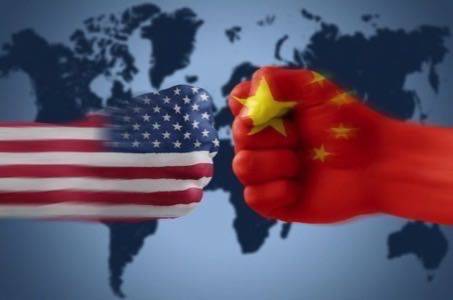
On Monday, the U.S. House of Representatives Select Committee on Intelligence report explicitly called out Chinese electronics corporations Huawei and ZTE as potential national security threats for the United States. The recommendations to avoid products and components from those companies could have wide-ranging effects on U.S. technology companies and buyers.
China’s Hard-Core Rep
The report drafted by the Committee, recommended “…[t]he United States should view with suspicion the continued penetration of the U.S. telecommunications market by Chinese telecommunications companies” as a backdrop to dealing with all Chinese firms in that sector, and specifically called out ZTE and Huawei.
“Private-sector entities in the United States are strongly encouraged to consider the long-term security risks associated with doing business with either ZTE or Huawei for equipment or services,” the report stated.
Both Huawei and ZTE have been linked by U.S. investigators as having close ties to the Chinese military, and both companies were accused earlier this year of selling equipment that would relay data back to China… allegations both companies have strongly denied.
Huawei and ZTE both vehemently denied today’s report’s conclusions. “We have to suspect that the only purpose of such a report is to impede competition and obstruct Chinese ICT companies from entering the US market,” Huawei said in a statement to the press.
Given the lengths that technology companies will go to to protect their markets in the courtroom, it is not so far-fetched to assume that some well-placed lobbyists could exert some influence on House Committee members and paint ZTE and Huawei as bad actors. And that could be what’s going on here.
But where there’s smoke, there’s often fire, and as noted, this isn’t the first time suspicions have been raised about relying too much on components from our strategic competitors. For example, a number of private and public officials have long made it a standard practice to take extreme care with their electronics when visiting mainland China to avoid having their privacy and security compromised.
The Complex Western Pacific Climate
Rocky relations with the increasingly powerful and assertice People’s Republic of China in a U.S. election season further complicates an already tense trade and political situation throughout the Western Pacific. Since the end of World War II, the U.S. has projected a very strong presence in that part of the world, particularly in its relationships with Japan and South Korea, and keeping a balance in trade, resource and security interests in that region of the world remains challenging.
The political complexities in a region where billions of dollars of electronics are designed and manufactured (electronics that Americans consume voraciously and that underpin much of our computing and communciations device and infrastructure), are very much a part of the reason why the U.S. is renewing its efforts to establish a presence in Western Pacific, to give all nations in East Asia a clear signal that America is not going away. While the U.S. publicly denies that it’s trying to “contain” China, there is little doubt that that’s exactly what it’s trying to do.
Watching The Ripple Effect
Today’s Committee report will most certainly cool U.S.-Chinese relations, though listening to both U.S. Presidential candidate’s stump speeches would probably have the same effect. If the rhetoric continues, each side might be tempted to start a more aggressive form of conflict, such as a trade war.
If U.S. companies abide by the recommendations of the report, it will be hard to tell what the immediate effects will be. It could prompt re-examining existing agreements with Huawei, ZTE and U.S. partners and would be even more likely to affect deals still in the planning stages.
Both companies make parts used to build electric power grids and banking and finance systems, not to mention parts for consumer devices. If any of those parts were critical to the manufacture of other companies’ finished products and were blocked by participation in this embargo, it could create a scarcity that would bump up prices right before the U.S. holiday shopping season.
And there’s no telling what China might do in retaliation. The complexities of the Asian markets are layered with many nuances, and the chain of cause and effect can be just as complex.
One possible first volley in such a push back could be a slow-down or cancellation of Beijing-vased Lenovo’s recently announced plans to build a new computer manufacturing facility in Whitsett, North Carolina . If that deal’s status changes, it would be a stinging financial and political blow to that region.
There is no sign yet that the Lenovo deal, or any other recent U.S.-Chinese deal, will be altered, but it is a possibility. But even if China chooses not to respond directly, U.S. participation in this recommended embargo will undoubtedly affect the global elecronics market and put further stress on gobal economies.
Image coutesy of Shutterstock.




















